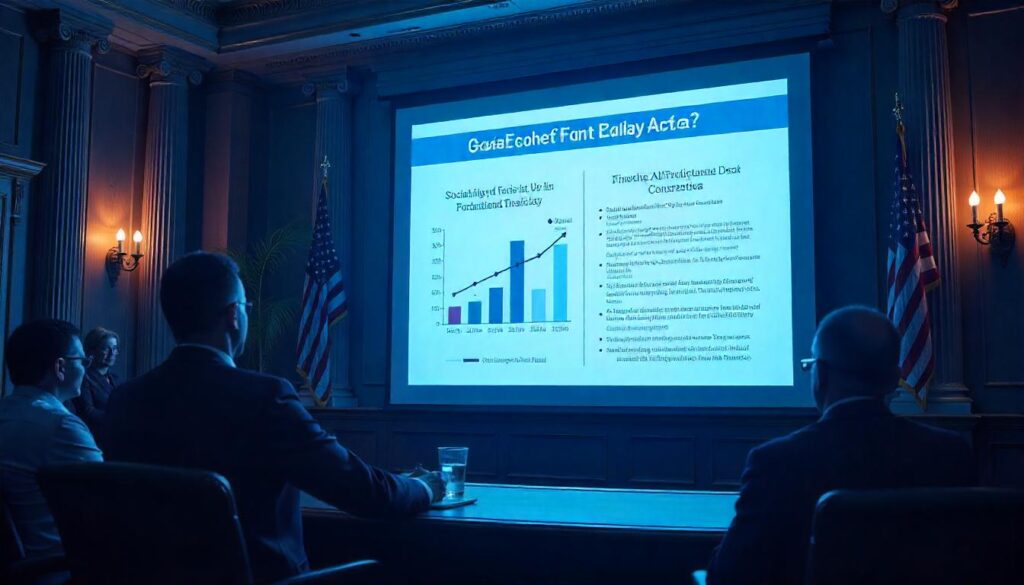
The Social Security Fairness Act addresses significant disparities faced by public servants, ensuring they receive fair treatment when it comes to Social Security benefits. Here’s a breakdown of what the act accomplishes and how it benefits teachers, police officers, firefighters, and other government employees:
Key Benefits
Repeal of the Government Pension Offset (GPO)
The act also repeals the Government Pension Offset, which significantly reduces—or entirely eliminates—spousal or survivor benefits for individuals receiving a government pension. This change ensures that surviving spouses, such as retired firefighters or other public workers, are not unfairly denied benefits they would have otherwise received, safeguarding their income in times of need.
Promoting Fairness and Equity
By addressing these provisions, the Social Security Fairness Act promotes fairness and equity for public servants across the nation. It recognizes the essential contributions of individuals who serve their communities and ensures retirement benefits reflect their dedication and service. This act is a major step forward in correcting long-standing inequities in the Social Security system.
1. Eliminates the Windfall Elimination Provision (WEP)
The WEP often reduces Social Security benefits for individuals who split their careers between private sector jobs (covered by Social Security) and public sector jobs (with a pension not covered by Social Security). By eliminating the WEP, the Act ensures that public servants receive the Social Security benefits they earned without unfair reductions.
2. Removes the Government Pension Offset (GPO)
The GPO can drastically reduce or eliminate Social Security spousal or survivor benefits for individuals who receive a government pension. By removing the GPO, public servants will no longer face offset penalties, granting them access to the full spousal or survivor benefits they have a right to claim.
3. Ensures Fair Benefits for Public Servants
The Act restores fairness by treating all employees and retirees equally, regardless of their career path. It acknowledges the dedication of public servants and ensures their contributions to Social Security are valued alongside those of private sector employees.
4. Provides Economic Security for Public Servants
By addressing the financial hardships caused by the WEP and GPO, the Act enhances economic stability for retirees like teachers, firefighters, and police officers. These changes give them the reliability of full Social Security benefits to supplement their pensions during retirement.
Hypothetical Examples of Impact

While the Social Security Fairness Act will be fully realized upon its enactment, the following examples show how it could positively affect individuals:
Example 1: A Retired Teacher
Susan, a retired teacher, spent 25 years educating children in the public school system. Throughout her career, she also worked part-time jobs in the private sector during summer breaks, contributing to Social Security. Under the current system, the Windfall Elimination Provision significantly reduces the Social Security benefits Susan would receive because she is also entitled to a teacher’s pension. With the passage of the Social Security Fairness Act, Susan would no longer face this penalty, granting her the full Social Security benefits she earned through her private sector work. This change would provide Susan with greater financial stability during her retirement years.
Example 2: A Police Officer and Spouse
John, a retired police officer, has a government pension from his years of service protecting his community, while his spouse, Mary, worked for decades in the private sector and contributed to Social Security. Under the current Government Pension Offset, John would receive little to no spousal or survivor benefits after Mary’s passing because of his pension. The Social Security Fairness Act would remove these offset penalties, ensuring John can access the full spousal benefits Mary earned through her contributions, supporting him during a difficult time.
Example 3: A Dual-Career Public Servant
Emma worked for 15 years as a public health worker before transitioning to a career in the private sector for another 20 years. Despite paying into Social Security during her private sector employment, the Windfall Elimination Provision currently reduces the benefits she would receive. By eliminating this provision, the Social Security Fairness Act would protect Emma’s earned Social Security benefits from being unfairly reduced, allowing her to receive the full support she deserves from both her public and private sector careers.
These examples highlight how the Social Security Fairness Act addresses critical inequities faced by public servants, ensuring they receive the benefits they have rightfully earned. This legislation represents a necessary step toward achieving fairness and financial security for millions of dedicated workers across the United States.
- Teacher with 20 Years of Service:
A teacher with a 20-year career in public service would avoid WEP penalties, allowing them to receive their full Social Security benefits alongside any accrued pension. This means their retirement income is significantly boosted, providing them with the financial freedom they deserve.
- Police Officer Affected by GPO:
A retired police officer who was previously unable to fully access Social Security spousal benefits due to the GPO can now claim those benefits without any reductions. This provides greater financial stability for them and their family during retirement.
- Government Employee with Multiple Careers:
An employee who worked part-time in the private sector and later became a government worker would no longer face combined benefit reductions under the WEP. They would be able to collect Social Security based on their full earnings history, giving them a more secure and predictable retirement income.
Why It Matters

The Social Security Fairness Act is more than just a legislative change—it is a recognition of the vital work that public servants perform for our communities. Teachers, police officers, firefighters, and countless other public employees have dedicated their lives to service, often sacrificing higher salaries and other benefits commonly found in private sector roles. These individuals deserve to retire with dignity and financial security. By addressing the inequities of the WEP and GPO, the Act ensures that public servants are treated fairly and can rely on the benefits they have worked hard to earn.
Additionally, passing this legislation has broader economic implications. Providing public servants with full access to their rightful Social Security benefits boosts their purchasing power in retirement, strengthening local economies as they spend on goods, services, and healthcare. This ripple effect contributes to economic growth and stability in communities across the nation. The Social Security Fairness Act is not just a measure for fairness—it is an investment in the well-being of those who have invested so much in our society. It is a meaningful opportunity to honor their commitment while fostering equity and economic security for millions of workers.
Conclusion
The Social Security Fairness Act is an essential piece of legislation that seeks to address long-standing disparities faced by public servants in regards to their access to full Social Security benefits. By eliminating the WEP and GPO, ensuring fair treatment, and providing economic security, this act will significantly benefit teachers, police officers, firefighters, government employees, and their families. It represents a crucial
